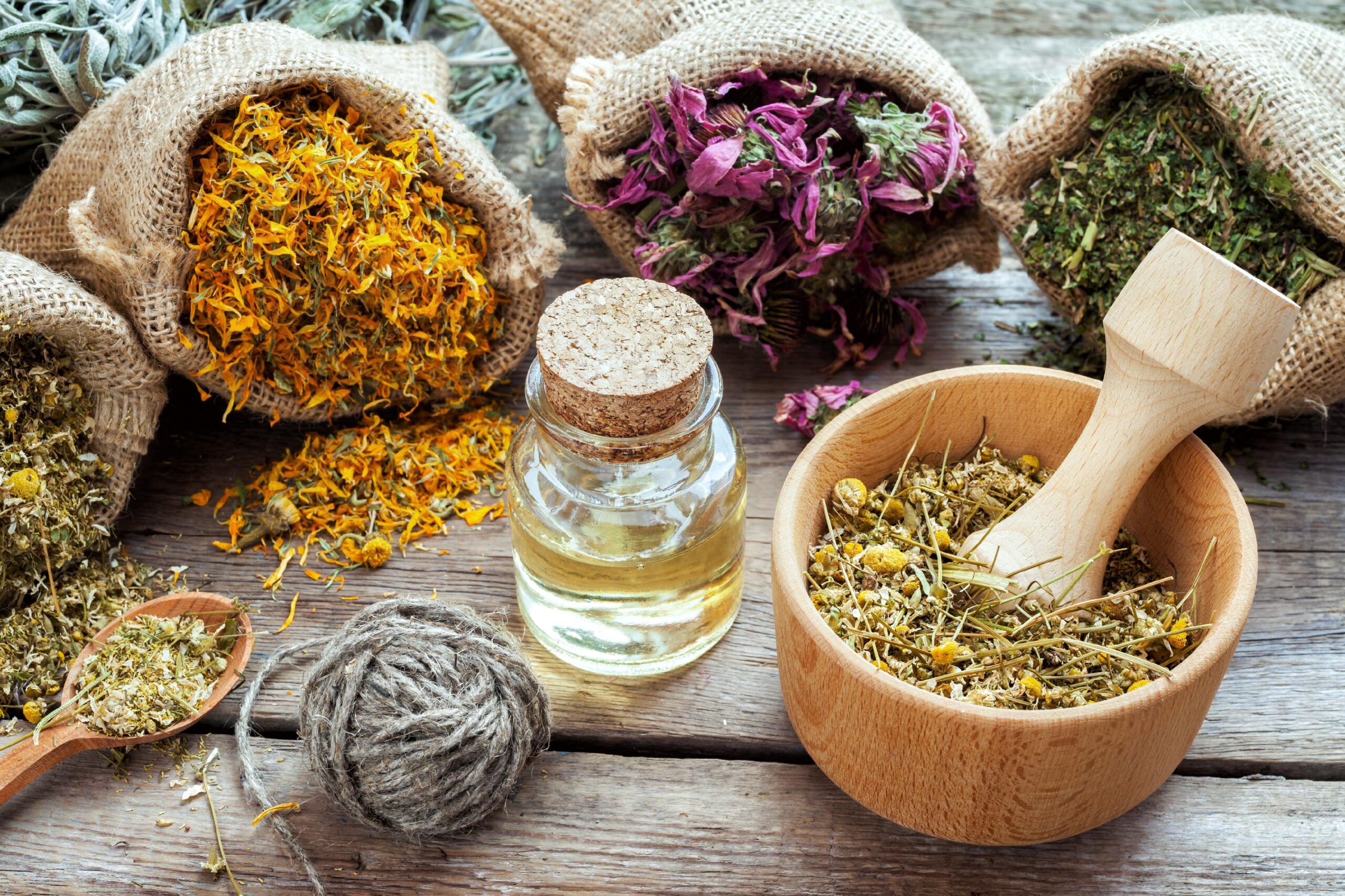Herbal medicine, often called phytotherapy, is one of the oldest forms of healthcare in human history. It uses plants and their extracts to prevent, treat, and manage various health conditions. Rooted in ancient traditions, herbal medicine continues to thrive today as a natural alternative or complement to conventional medicine. Here’s an in-depth look at herbal medicine, its benefits, and how to use it safely.
What is Herbal Medicine?
Herbal medicine involves using the roots, leaves, flowers, seeds, or bark of plants for medicinal purposes. It is practiced worldwide, often as part of traditional systems like Ayurveda, Traditional Chinese Medicine (TCM), and Native American healing.
Key features of herbal medicine:
- Focus on natural remedies.
- Often used for chronic conditions or preventive care.
- Aims to restore balance and support the body’s natural healing processes.
Common Herbs and Their Uses
- Turmeric (Curcuma longa):
- Active Ingredient: Curcumin.
- Benefits: Anti-inflammatory, antioxidant, supports joint and digestive health.
- Common Uses: Arthritis, digestive disorders, and boosting immunity.
- Echinacea:
- Benefits: Boosts the immune system, reduces the severity of colds.
- Common Uses: Preventing and managing respiratory infections.
- Chamomile:
- Benefits: Calming, anti-inflammatory, promotes better sleep.
- Common Uses: Insomnia, anxiety, and digestive issues.
- Ginger:
- Benefits: Anti-nausea, anti-inflammatory, aids digestion.
- Common Uses: Motion sickness, morning sickness, and arthritis.
- Peppermint:
- Benefits: Relieves headaches, improves digestion, reduces bloating.
- Common Uses: Irritable bowel syndrome (IBS) and tension headaches.
- Ginseng:
- Benefits: Enhances energy, boosts the immune system, improves cognitive function.
- Common Uses: Fatigue, stress management, and focus.
- Aloe Vera:
- Benefits: Soothes skin irritation, aids in digestion, and promotes wound healing.
- Common Uses: Burns, minor wounds, and digestive health.
- Lavender:
- Benefits: Calms the mind, reduces stress, and improves sleep.
- Common Uses: Anxiety, insomnia, and relaxation.
Benefits of Herbal Medicine
- Natural Remedies:
- Uses plant-based ingredients with fewer synthetic chemicals.
- Fewer Side Effects:
- Often gentler on the body compared to pharmaceutical drugs.
- Cost-Effective:
- Herbal remedies are often more affordable than conventional treatments.
- Preventive Care:
- Many herbs support long-term health and immunity.
- Holistic Approach:
- Focuses on treating the root cause of health issues rather than just symptoms.
Challenges and Risks
- Lack of Standardization:
- Herbal supplements can vary in quality and potency.
- Drug Interactions:
- Some herbs may interact with prescription medications.
- Example: St. John’s Wort can reduce the effectiveness of antidepressants.
- Allergic Reactions:
- Individuals may be allergic to certain herbs or their components.
- Overuse or Misuse:
- Excessive consumption of certain herbs can be harmful.
- Example: Overusing licorice root may cause high blood pressure.
How to Use Herbal Medicine Safely
- Consult a Professional:
- Work with a certified herbalist or healthcare provider to ensure safe use.
- Buy Reputable Products:
- Choose supplements from trusted brands that follow quality control practices.
- Start Small:
- Begin with lower doses to assess your body’s response.
- Research Potential Interactions:
- Inform your doctor about any herbal remedies you’re using, especially if you take other medications.
- Follow Dosage Instructions:
- Adhere to recommended dosages and avoid self-medicating.
Popular Forms of Herbal Medicine
- Teas and Infusions:
- Herbs steeped in hot water to extract their active compounds.
- Example: Chamomile tea for relaxation.
- Capsules and Tablets:
- Convenient forms of powdered or concentrated herbal extracts.
- Example: Turmeric capsules for inflammation.
- Tinctures:
- Alcohol-based herbal extracts for potent, fast-acting remedies.
- Example: Echinacea tincture for immune support.
- Essential Oils:
- Concentrated plant oils used in aromatherapy or topical applications.
- Example: Lavender oil for stress relief.
- Poultices and Salves:
- Herbs applied directly to the skin for localized effects.
- Example: Aloe vera gel for burns.
Herbal Medicine in Modern Healthcare
Herbal medicine is increasingly integrated into modern healthcare as a complementary approach. Many pharmaceutical drugs are derived from plants, and ongoing research explores the therapeutic potential of herbs.
Examples of Integration:
- Traditional Chinese Medicine (TCM) herbs combined with acupuncture.
- Herbal supplements used alongside conventional treatments for conditions like arthritis and anxiety.
Herbal medicine offers a natural, holistic approach to health and wellness. By harnessing the healing power of plants, it provides a valuable alternative or complement to conventional medicine. While its benefits are undeniable, it’s essential to use herbal remedies responsibly and in consultation with healthcare professionals.
Whether you’re looking to boost your immunity, manage stress, or address chronic conditions, herbal medicine provides a wealth of options to support your health journey. Are you ready to explore nature’s healing power?
Topics: Alternative Medicine Herbal Medicine Holistic Health Natural Remedies Plant-Based Healing Wellness Solutions













